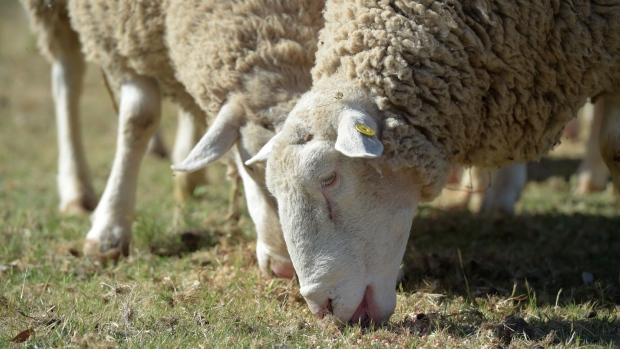Jan 30, 2024
Red Sea Conflict Leaves Australian Sheep Stranded for Months
, Bloomberg News

(Bloomberg) -- The exporter of livestock aboard a carrier off Australia’s west coast has applied to the government to send some of the animals back to overseas buyers, which would extend their time at sea to more than a month.
The shipper also requested permission to unload some of the livestock in Australia before re-exporting the rest, according to a Department of Agriculture notice. It didn’t say which destinations were being considered.
The Bahijah, carrying thousands of sheep and cattle, has been anchored off Fremantle port since Monday. That’s after Australia ordered it to turn back from its original destination in the Middle East due to turmoil in the Red Sea.
The department will weigh whether to restock the ship with food and fodder before sending it off to another destination, or put the animals in quarantine in Australia, said Mark Harvey-Sutton, chief executive officer at the Australian Livestock Exporters’ Council.
Due to Australia’s strict biosecurity laws, the animals couldn’t re-enter the herd, and would have to be slaughtered onshore, he said. The exporter of animals on the Bahijah is not a member of the council.
“The industry’s threat to re-export the animals is recklessly irresponsible, callous and prioritizes their profits over the welfare of these animals which is now in perilous danger,” according to a statement from the RSPCA, the country’s leading animal welfare organization.
Heat Wave
Josh Wilson, Fremantle’s federal member of parliament, said the situation was a crisis for the animals onboard amid a heat wave expected to see temperatures soar as high as 45 degrees C in parts of Western Australia.
“There’s no doubt that heat is something that needs to be managed. But the industry, particularly over the last few years, has proven they can do that,” said Harvey-Sutton, who referred to measures including ventilation, constant monitoring and restrictions on how densely animals can be packed.
Reports from a registered veterinarian on board the vessel indicate no signs of significant health or welfare concerns, said the Department of Agriculture, which added it was assessing the feasibility of an additional independent veterinarian to attend to the animals.
The government is seeking to phase out the export of sheep by sea to improve animal welfare, following concerns over previous livestock deaths during transport. It didn’t respond to specific questions about the timeline for a decision on the animals aboard the Bahijah.
(Updates to add RSPCA comment in sixth paragraph)
©2024 Bloomberg L.P.






